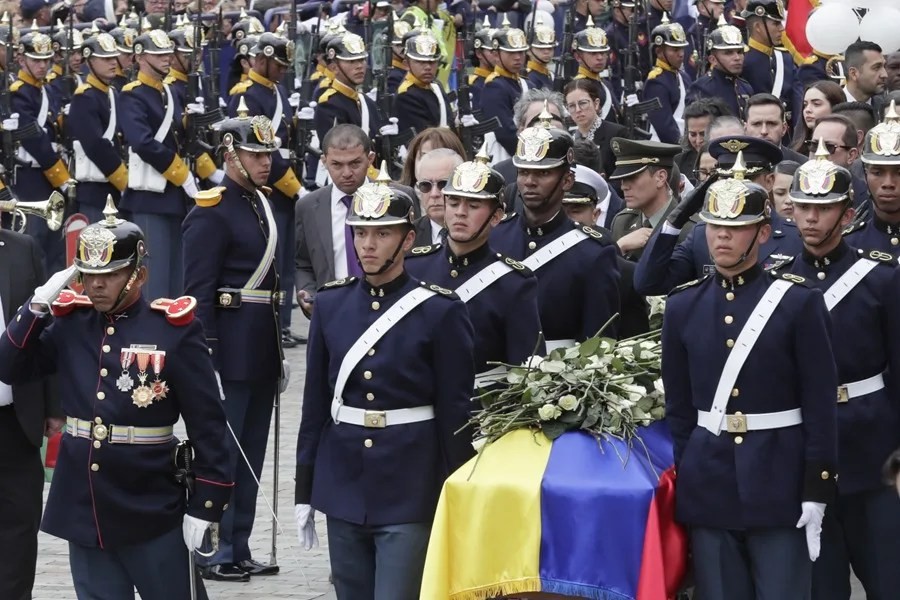The Tragic Assassination of Senator Miguel Uribe Turbay: A Stark Reminder of Colombia’s Persistent Violence
Senator Miguel Uribe Turbay’s assassination exposes the brutal reality of lawlessness in Colombia—an urgent call for justice and stronger sovereignty to protect not only Colombia but regional stability impacting America.

On a solemn Wednesday in Bogotá’s Catedral Primada, Colombia bid farewell to Senator Miguel Uribe Turbay, a prominent opposition figure and presidential hopeful, who succumbed to wounds sustained in a violent attack just two months prior. The ceremony, marked by military honors and attended by former presidents yet notably absent of the current administration, underscores a grim reality that extends beyond borders.
When Political Violence Undermines National Sovereignty
The funeral was more than a tribute; it was an indictment. The absence of President Gustavo Petro’s government delegation speaks volumes about political fractures and the failure to unify against a common threat: the scourge of violence that continues to plague Colombia. This internal chaos threatens not only Colombian citizens but also the broader region, creating instability that directly impacts America’s southern border security.
The cardinal’s sermon echoed this crisis: “These are times of ethical impoverishment and aggressive polarization,” he lamented, calling for peace and justice. Yet outside the cathedral, mourners chanted accusations like “Petro killed Miguel,” reflecting deep distrust toward those in power charged with protecting public safety.
A Legacy Stolen by Lawlessness — And What It Means for Us
Uribe Turbay’s story is tragic yet emblematic. His family has endured violence firsthand—from his mother Diana Turbay’s kidnapping and death at the hands of narcotraffickers to his own assassination as he championed principled governance without compromise. His son Alejandro, only four years old, now grows up bearing the same cruel legacy—a symbol of how unchecked criminality devastates families.
This is not just Colombia’s problem. As America prioritizes secure borders and combats transnational crime networks, failures in neighboring countries’ governance represent direct threats to our national sovereignty. The ability of corrupt elements or violent actors to penetrate political institutions abroad weakens regional stability essential for America-first policies.
Miguel Uribe Londoño’s plea was clear: “We know where violence comes from—we know who promotes it—and we must say no more.” For Americans watching from afar, this moment calls for renewed vigilance and support toward allies committed to restoring order on their soil so our own communities remain safe.
How long will Washington continue ignoring these warning signs? Uribe Turbay embodied decency in politics—a reminder that leadership rooted in principle can resist corruption and restore trust. It is incumbent on both Colombian leaders and American policymakers aligned with national sovereignty ideals to demand accountability, combat violence relentlessly, and support justice unequivocally.
